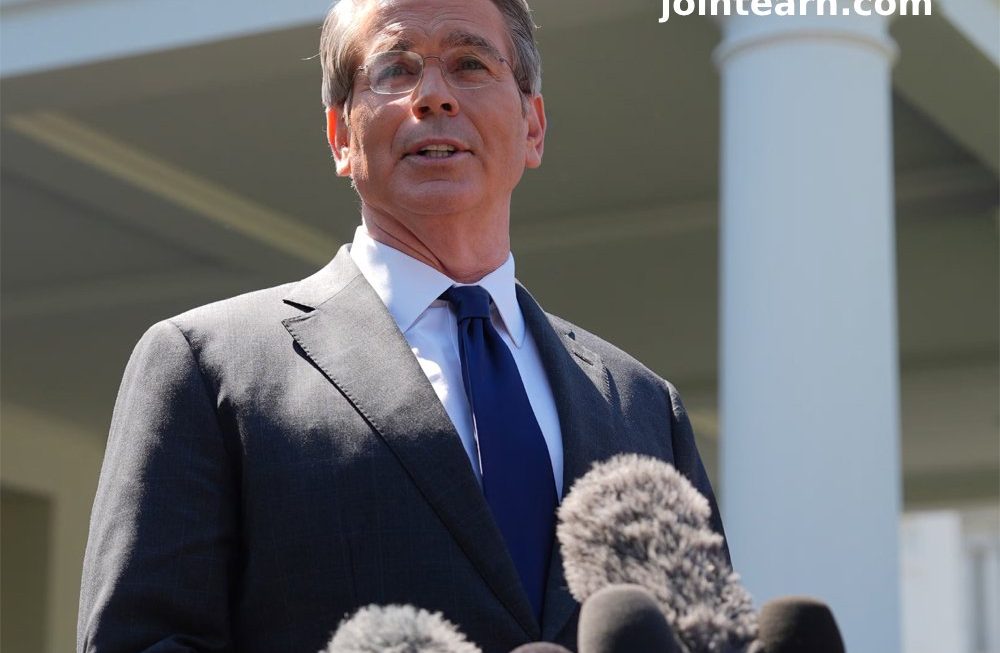Mayor Brandon Johnson’s administration announced on Tuesday that his latest pension payment and borrowing strategy for Chicago Public Schools (CPS) is essential to avoid a city budget deficit. This marks the latest development in his ongoing struggle with CPS leadership over the district’s finances.
At a City Hall news conference, Mayor Johnson and Chief Financial Officer Jill Jaworski discussed their urgent March 30 deadline to convince the school board to approve a $175 million pension payment, which has created a significant budget shortfall. To address this, the administration proposed issuing $242 million in bonds to cover both the pension payment and the upcoming Chicago Teachers Union contract negotiations, as reported by the Tribune.
The Johnson team emphasized that if the school board does not approve this solution, they will be forced to ask aldermen to authorize using city reserves to close the $2024 deficit. Drawing heavily from city reserves could lead to a credit downgrade, as S&P has already placed the city at a second-lowest credit rating due to Johnson’s 2025 spending plan.
This situation marks a significant shift from Johnson’s earlier efforts to exert control over CPS CEO Pedro Martinez during the final stages of mayoral control of the Board of Education. Despite facing these tough choices, Johnson rejected the suggestion that his administration could have better prepared for this outcome.
In his response to reporters, Johnson stated, “This is not just about responding to inconvenient circumstances. It’s about creating the ideal conditions so parents feel confident their children will receive the same quality education as those in other parts of the city.”
Jaworski placed the blame for the city and CPS financial challenges squarely on CPS leadership, while acknowledging that aldermen were assured during the last budget cycle that the deficit would be balanced once the district received enough tax-increment financing (TIF) funds to cover the pension costs. Despite the allocation of $298 million in TIF surplus funds in Johnson’s 2025 budget, CPS chose to reallocate some of those funds for other purposes, according to Jaworski.
In response, CPS stated that it could only meet the pension payment if it receives additional TIF revenue from the city. CPS added that it had worked hard to balance its budget by identifying cost-saving measures, despite financial constraints.
Meanwhile, Johnson’s deputy mayor for labor relations, Bridget Early, has circulated a proposal urging CPS to take on the $175 million pension payment responsibility by the March 30 deadline. However, this requires a two-thirds majority vote from the 21-member hybrid school board, with seven members voting against the plan leading to its defeat.
Johnson, who won the mayoral race with strong support from the teachers union, controls the board until 2027, with 11 appointments. Of the 10 elected members, four were endorsed by the teachers union, and six were supported by charter school advocates or were independent. Some board members, including Jennifer Custer from District 1, have expressed opposition to taking out a loan for the district, warning that it could harm CPS in the long term.
Other board members, such as Jitu Brown, a union-backed member, are examining ways to avoid cuts that would disproportionately affect Black and brown students. Brown, however, indicated he would support a loan if it is a viable option to balance the budget.
CPS leadership has raised concerns that approving Johnson’s plan could violate legal requirements for a balanced budget. However, Johnson contends that Martinez had committed to having CPS absorb the pension payment, though Martinez had previously indicated that the district needed $325 million in additional TIF revenue to proceed.
With only $139 million in available TIF surplus, CPS argues that additional revenue or expenditure cuts are the only viable options to cover both the pension payment and the labor contracts. Johnson has repeatedly called for more “progressive revenue” but doubts Springfield will act before the March 30 deadline.
In response to CPS’s reservations about taking on more debt, Jaworski suggested that the district could still create a financial plan to secure the necessary funding, if necessary, to meet its budget obligations. Additionally, Johnson-appointed board president Sean Harden has hired the financial advisory firm Baker Tilly to provide an independent analysis of CPS’s financial situation. This report, which will cost the board $35,000, has not been released yet.
Johnson’s proposed $242 million bond issuance would carry either a 4.37% interest rate for a five-year repayment term or a 4.6% rate for a 10-year term. The administration expects CPS to repay the debt using revenue from expiring TIF districts.
Regarding the city’s year-end reserve balance, Jaworski stated that it is too early to provide an accurate figure. The last time the Johnson administration made a significant withdrawal from city reserves was to cover a $70 million allocation for the migrant crisis last spring.












